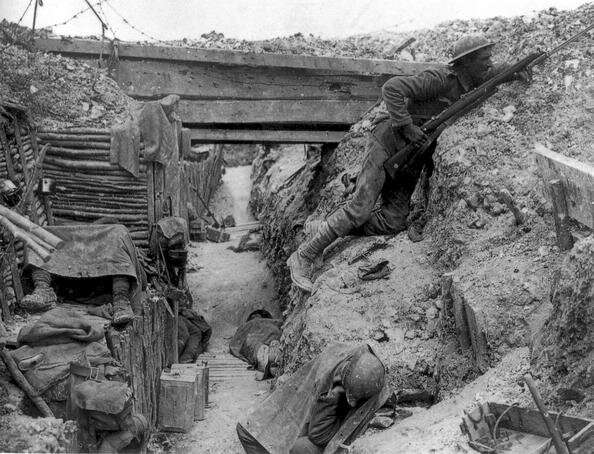How empathy can help students grasp past and present

To really understand people and actions of the past, students need to empathise with the spirit of the time. By considering history from past perspectives, they are better placed to understand and evaluate other people's perspectives in the present day.
In this age of mass, fragmentary information, it is more important than ever to see the big picture and ask questions such as "how is it possible for people to think and act in this way?" Tyson Retz, an associate professor at the University of Stavanger, considers.
"Empathy as a historical method arose initially in Germany, where it was also central to theories of beauty. What makes a thing beautiful?"
"Around the mid-20th century, first in the U.K., empathy was introduced to history education to fulfill an ethical purpose," Retz says.
Today, empathy features globally in school and university history curricula, textbooks and teacher-training programs. Though it has remained controversial, with some regarding it as an emotional activity that violates history's rational and evidence-based principles. For this reason, 'perspective taking' has often been chosen as an alternative in order to avoid empathy's seemingly emotional connotations.
Two kinds of empathy
In his book Empathy and History: Historical Understanding in Re-enactment, Hermeneutics and Education, Retz demonstrates how there are two kinds of empathy: cognitive empathy and emotional empathy.
"We need both dimensions, but the cognitive variety is central to history. It is, fundamentally, about investigating historical context. We must be intellectually committed to understanding the context of people's lives and how those contexts change over time to affect people's beliefs and actions," he says.
The importance of history
According to Retz, today history is more important than ever.
In order to grasp the quick changes, fake news and social media postings we need to engage critically with sources of information and the reasons people offer for taking specific courses of action.
"History is about understanding how it was possible for people in the past to think and act in the ways they did. It is when we make a link between past and present ways of thinking and acting that we orient ourselves in space and time and begin to feel more at home in the world," he elaborates.
Alternative facts
Retz's ambition is to recast empathy as a historical method that illustrates how it was and continues to be possible to hold beliefs as true and to act upon them accordingly.
"We as history educators play into the hands of 'alternative facts' rhetoric when we fail to teach our students respect for truth arrived at through the varied, ever-evolving, imperfect, but still best-available norms and practices of this historical method."
Behind appearances
The goal is to penetrate behind appearances and achieve insight into historical situations; to revive, relive and re-experience the hopes, fears, plans, desires, views and intentions of historical persons.
Retz's hope is that this may also rescue history from what the celebrated English social historian E.P. Thompson described as the 'enormous condescension of posterity' and prevent students from judging the past by present-day standards.
"With a little empathy, students could learn to view history less as a catalogue of foolish behavior and more as a humanly study of past peoples who acted within a context of possibilities and limitations, specific to their time and place," he adds.
Understand, not forgive
But what about the less desirable characters of history. If empathy is to put oneself in someone else's shoes, are we supposed to understand them?
According to Retz, to a certain extent, yes.
"Everybody agrees on the importance of empathy for victims, but empathy for, say, the Nazis is much more controversial. But we need to understand both. It is more about understanding the structures of the times than understanding the individual psychology of perpetrators. We need to know how Hitler could become Hitler, which is to say that we need to understand the distinct historical context in which he operated."
"But to understand does not necessarily mean to forgive. I can understand and still be critical of what I am understanding. We can, so to speak, walk in the shoes of people who lived in the past, and then put our shoes back on to evaluate that experience."
Political subject
"History is one of the most political of subjects. That makes it all the more important to have methods that can help students view the full picture," Retz says.
He observes that we often approach history in a condescending way and tend to regard the present as superior to the past and the actions of past peoples as rash or odd or even foolish.
"Instead, we need to consider how it was possible for people in the past to see the world the ways they did. What were their views of the world? How did these affect what they believed? How did those beliefs lead them to act in ways that to us in the present day seem strange?"
Context is everything
"It's all about investigating a specific kind of historical context," Retz states.
He points out that history's educational potential consists largely in the way that it humanises us by rendering seemingly alien behavior into something familiar, reasonable and explainable. In empathising with the past, students also discover differences between past and present, and so grasp more profoundly the distinct nature of their own historical moments.
Provided by University of Stavanger




















